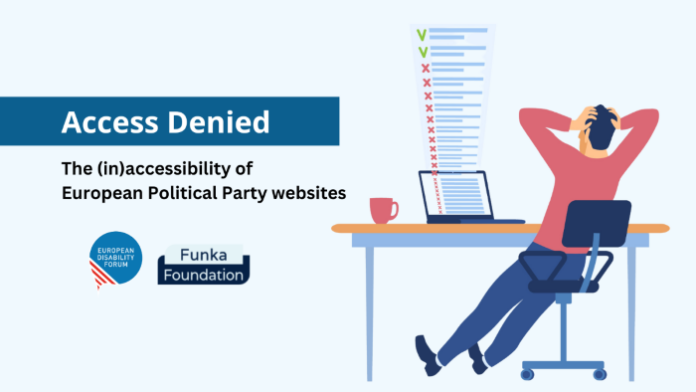The report “Access Denied”, launched today, reveals that European political parties’ websites are vastly inaccessible to users with disabilities, with some components even reversing default accessibility measures.
The report, co-authored by the European Disability Forum and the Funka Foundation (a leader in the sector of digital accessibility), found appalling results in the websites of the 7 main European political parties – European People’s Party, Party of European Socialists, ALDE Party, ECR Party, European Greens, European Left and Identity and Democracy. The report identifies that these results are a symptom of the problem of widespread inaccessibility of political information – which hinders persons with disabilities from casting an informed vote.
“The results are very disappointing but not surprising – they reflect the widespread lack of attention to the accessibility of information in the political world. Political parties must guarantee their communication is accessible to every voter – including voters with disabilities,” Yannis Vardakastanis, President of the European Disability Forum, said.
The main findings of the report include that: All political parties’ websites have severe accessibility issues, completely excluding groups of users and making it difficult for others to access information; Some websites have actively removed code that benefits users, making the interface less accessible; Some instances of insufficient colour contrast found were the worst any of the involved experts had ever measured before.
“Some of the content is so difficult to find and/or read that I wonder if the political parties are at all interested in voters understanding their message – it should be in their own interest to reach as many voters as possible,” Susanna Laurin, Chair of the Funka Foundation, stated.
The report intends to provide constructive input to political parties and all political actors to ensure that their information becomes accessible to persons with disabilities. The path forward must include: Training web authors and other relevant staff in accessibility for websites, digital channels and publishing; Involving end users with disabilities in designing, developing and testing digital interfaces, in order to make sure they work for everyone; Using the European standard for accessible ICT when procuring, designing and developing digital interfaces.

